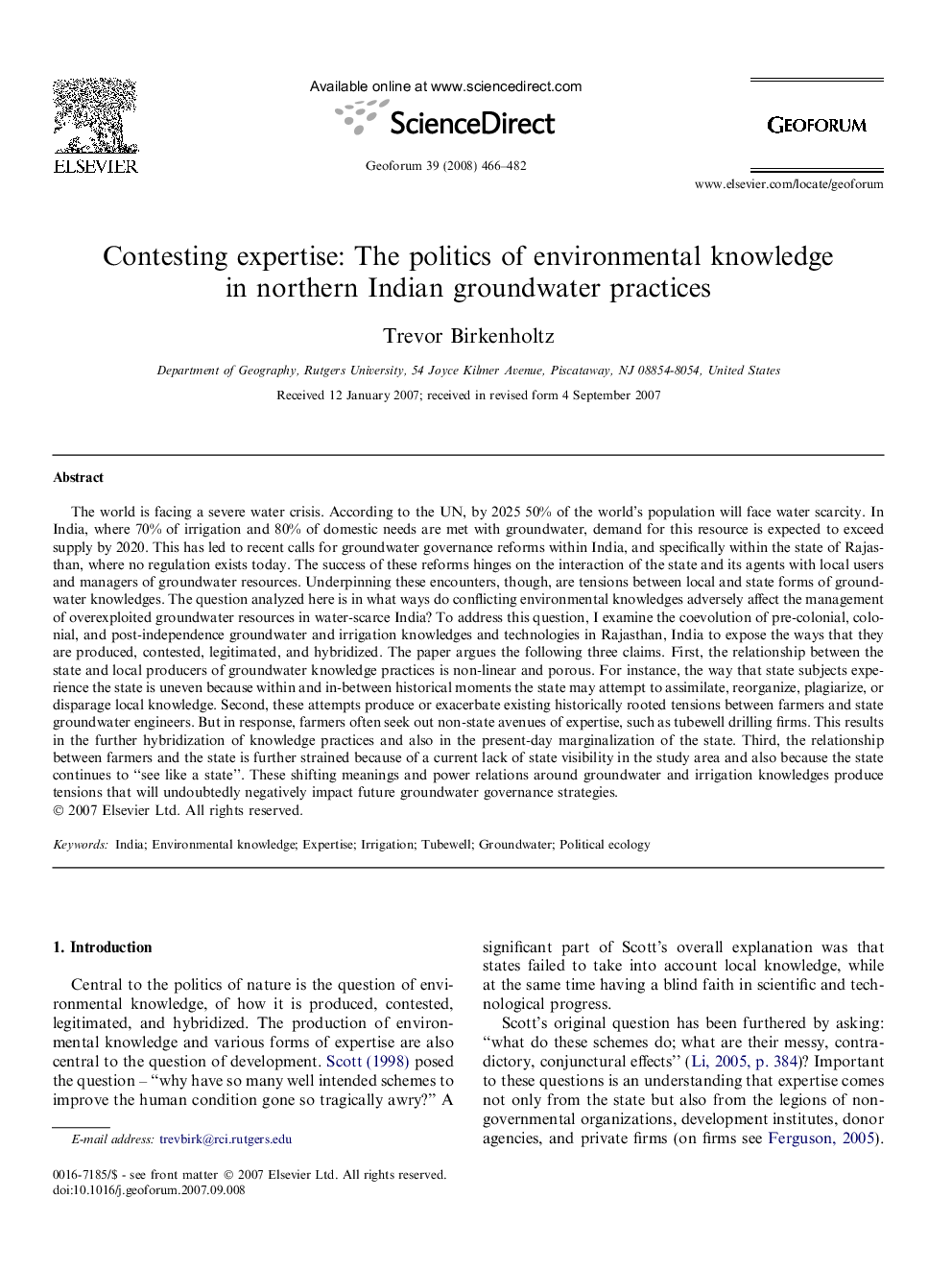| کد مقاله | کد نشریه | سال انتشار | مقاله انگلیسی | نسخه تمام متن |
|---|---|---|---|---|
| 5074991 | 1373722 | 2008 | 17 صفحه PDF | دانلود رایگان |

The world is facing a severe water crisis. According to the UN, by 2025 50% of the world's population will face water scarcity. In India, where 70% of irrigation and 80% of domestic needs are met with groundwater, demand for this resource is expected to exceed supply by 2020. This has led to recent calls for groundwater governance reforms within India, and specifically within the state of Rajasthan, where no regulation exists today. The success of these reforms hinges on the interaction of the state and its agents with local users and managers of groundwater resources. Underpinning these encounters, though, are tensions between local and state forms of groundwater knowledges. The question analyzed here is in what ways do conflicting environmental knowledges adversely affect the management of overexploited groundwater resources in water-scarce India? To address this question, I examine the coevolution of pre-colonial, colonial, and post-independence groundwater and irrigation knowledges and technologies in Rajasthan, India to expose the ways that they are produced, contested, legitimated, and hybridized. The paper argues the following three claims. First, the relationship between the state and local producers of groundwater knowledge practices is non-linear and porous. For instance, the way that state subjects experience the state is uneven because within and in-between historical moments the state may attempt to assimilate, reorganize, plagiarize, or disparage local knowledge. Second, these attempts produce or exacerbate existing historically rooted tensions between farmers and state groundwater engineers. But in response, farmers often seek out non-state avenues of expertise, such as tubewell drilling firms. This results in the further hybridization of knowledge practices and also in the present-day marginalization of the state. Third, the relationship between farmers and the state is further strained because of a current lack of state visibility in the study area and also because the state continues to “see like a state”. These shifting meanings and power relations around groundwater and irrigation knowledges produce tensions that will undoubtedly negatively impact future groundwater governance strategies.
Journal: Geoforum - Volume 39, Issue 1, January 2008, Pages 466-482